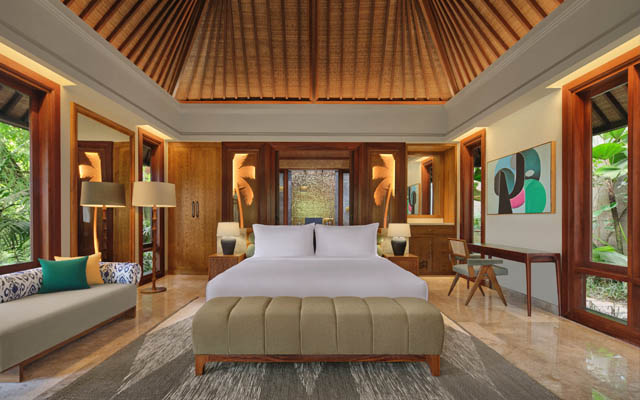Meaningful experiences are as important as ever in Singapore, where big spenders are setting the tone for future travel with demand for relaxing staycations.
With the country’s borders still closed to leisure travel, Singapore’s spenders are turning to easy-going staycation experiences to satiate their desire for a relaxing holiday. These programmes – ranging from private activities to immersive dining – may be an early signal of how luxury travel could recover in the medium term.
For instance, Capella Singapore has introduced a series of programmes for its staycation groups. Besides a Revitalising Yoga Class every Sunday and Tea Time at The Living Room, guests may also participate in a Build Your Own Boba class, Rum Appreciation, a Heritage and Art Tour, and a Floral Styling Workshop. Children can get busy with the Little Stars Culinary Workshop, with the choice of making cake pops or decorating cookies and cupcakes.

Meanwhile, the iconic Raffles Singapore has partnered with award-winning Peranakan attraction The Intan to launch the Intricacies of the Peranakan Culture package. Staycation guests can enjoy a one-hour guided tour by The Intan’s owner Alvin Yapp, complete with two-way Raffles Limousine transfer, traditional Peranakan refreshments, and the opportunity to view exclusive collections.
Also garnering much fanfare is Grand Hyatt Singapore’s rerun of Le Petit Chef, an immersive dining adventure in the hotel’s mezza9 La Cave wine cellar featuring a theatrical 3D projection-mapping performance. Since its relaunch earlier this year, its weekend sessions have almost all sold out.
“Both Grand Hyatt Singapore and Andaz Singapore have received staycation bookings, which are driving weekend occupancies. There is a strong pent-up demand for people in Singapore to get out of their homes and to reconnect with their loved ones in a different but safe environment. We expect domestic leisure demand and F&B to drive business at our hotels during this period,” shared Carina Chorengel, senior vice president – commercial, Asia Pacific, Hyatt.
The rise of slow travel
This pattern of slow and meaningful local stays will likely spread into the outbound tourism sphere, predict travel businesses.

Iain Langridge, divisional managing director, Asia Pacific at Belmond, said: “There’s a greater desire to slow down, reconnect and savour life’s simple pleasures, as well as a nostalgia to return to fond and familiar destinations. We are anticipating more travel within Asia as Singaporeans and Singapore residents explore more of their own ‘backyard’ and seek extended, private and inherently safe escapes.”
In preparation for this demand, Belmond has evolved its off-property programmes to include more outdoor, conscientious and community-based excursions. For instance, guests at Belmond La Residence Phou Vao may join a local collective of traditional textile weavers to learn about the traditional Laotian process of creating designs using natural ingredients.
He added that Belmond plans to continue its “hyper-localisation strategy” by focusing on markets where it will be easier to travel to from Singapore, such as Thailand.
Trend findings from andBeyond corroborate this movement towards hyper-localisation, as the company reports demand for “simpler itineraries”. Its chief marketing officer, Nicole Robinson, explained: “We are seeing demand for simpler itineraries within a single country, (with travellers) looking at what can be done without having to cross too many borders. Spending more time in a single destination encourages more meaningful experiences.”
Month-long getaways will also be a thing of the past; rather, agencies like Belmond are expecting Singaporeans to spend shorter time abroad as they dip their toes into cross-border travel in the short term. Langridge noted: “Singaporean and Singapore-based luxury travellers are accustomed to getting on a plane for a short getaway. With the prolonged travel restrictions, we expect short weekend trips among this demographic to continue to be popular.”
This growth in outbound traffic from Singapore may proceed slowly in the initial stages of recovery even when borders have reopened and there is clarity provided on international movement, opined Robinson. She expressed: “We don’t anticipate a quick comeback, as there are people who will naturally still be very cautious without a vaccine. Until then, the growth and return will be gradual.”


















